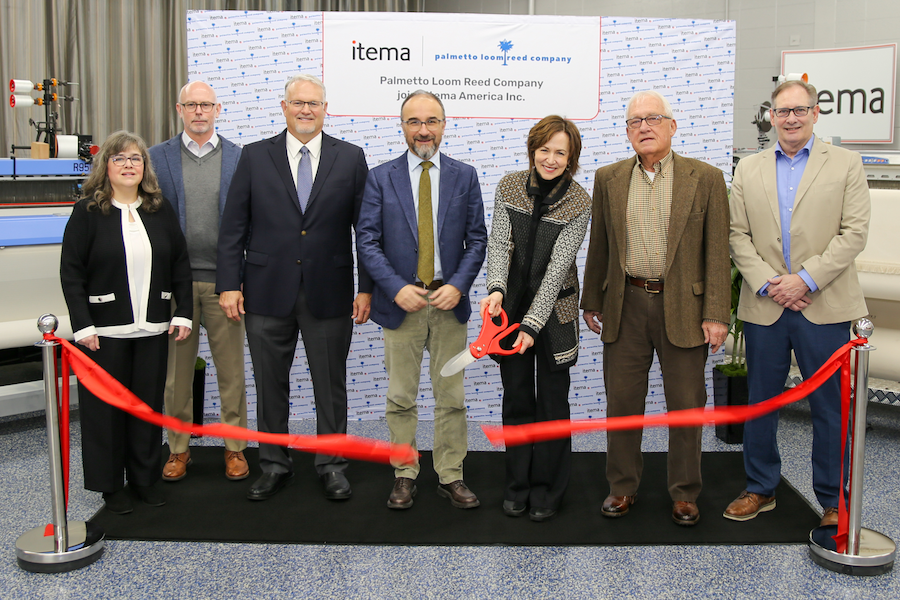#Europe
Coronavirus resurgence: Commission steps up action to reinforce preparedness and response measures across the EU
Concretely, the measures aim to better understand the virus' spread and the effectiveness of the response, ramp up well-targeted testing, bolster contact tracing, improve preparations for vaccination campaigns, and maintain access to essential supplies such as vaccination equipment, while keeping all goods moving in the single market and facilitating safe travel. This comes ahead of the European Leaders' virtual meeting on 29 October on COVID-19 coordination, following the 15 October European Council. Even though Member States are better prepared and more coordinated than in the early months of the pandemic, citizens, families and communities across Europe continue to face an unprecedented risk to their health and well-being.
President of the European Commission, Ursula von der Leyen, said: “The COVID-19 situation is very serious. We must step up our EU response. Today we are launching additional measures in our fight against the virus; from increasing access to fast testing, and preparing vaccination campaigns to facilitating safe travel when necessary. I call on Member States to work closely together. Courageous steps taken now will help save lives and protect livelihoods. No Member State will emerge safely from this pandemic until everyone does.”
Stella Kyriakides, Commissioner for Health and Food Safety, said: “The rise in COVID-19 infection rates across Europe is very alarming. Decisive immediate action is needed for Europe to protect lives and livelihoods, to alleviate the pressure on healthcare systems, and to control the spread of the virus. Next month, we will present the first step towards a European Health Union. In the meantime, Member States must improve cooperation and data sharing. Our EU surveillance system is only as strong as its weakest link. It is only by showing true European solidarity and working together that we can overcome this crisis. Together we are stronger.”
The Commission's Communication on additional COVID-19 response measures sets out next steps in key areas to reinforce the EU's response to the resurgence in COVID-19 cases:
1. Improving the flow of information to allow informed decision-making
Ensuring accurate, comprehensive, comparable and timely information on epidemiological data, as well as on testing, contact tracing and public health surveillance, is essential to track how the coronavirus spreads at regional and national level. To improve the sharing of data at EU level, the Commission calls on Member States to provide all relevant data to the European Centre for Disease Prevention and Control (ECDC) and the Commission.
2. Establishing more effective and rapid testing
Testing is a decisive tool to slow down the spread of the coronavirus. To promote a common approach and effective testing, the Commission is today adopting a Recommendation on COVID-19 testing strategies, including the use of rapid antigen tests. It sets out key elements to be considered for national, regional or local testing strategies, such as their scope, priority groups, and key points linked to testing capacities and resources, and indications as to when rapid antigen testing may be appropriate. It also calls on Member States to submit national strategies on testing by mid-November. To directly purchase rapid antigen tests and deliver them to Member States, the Commission is mobilising €100 million under the Emergency Support Instrument. In parallel, the Commission is launching a joint procurement to ensure a second stream of access. Where Member States are applying prior testing requirements to incoming travellers and where no testing capacities are available for asymptomatic travellers in the country of origin, travellers should be offered the possibility to undergo a test after arrival. If negative COVID-19 tests are to be required or recommended for any activity, mutual recognition of tests is essential, in particular in the context of travel.
3. Making full use of contact tracing and warning apps across borders
Contact tracing and warning apps help to break transmission chains. So far, Member States have developed 19 national contact tracing and warning apps, downloaded more than 52 million times. The Commission recently launched a solution for linking national apps across the EU through a ‘European Federation Gateway Service'. Three national apps (Germany, Ireland, and Italy) were first linked on 19 October when the system came online. Many more will follow in the coming weeks. In total, 17 national apps are currently based on decentralised systems and can become interoperable through the service in the coming rounds; others are in the pipeline. All Member States should set up effective and compatible apps and reinforce their communication efforts to promote their uptake.
4. Effective vaccination
The development and uptake of safe and effective vaccines is a priority effort to quickly end the crisis. Under the EU Strategy on COVID-19 vaccines, the Commission is negotiating agreements with vaccine producers to make vaccines available to Europeans and the world as soon as soon as they are proven safe and effective. Once available, vaccines need to be quickly distributed and deployed to maximum effect. On 15 October, the Commission set out the key steps that Member States need to take to be fully prepared, which includes the development of national vaccination strategies. The Commission will put in place a common reporting framework and a platform to monitor the effectiveness of national vaccine strategies. To share the best practices, the conclusions of the first review on national vaccination plans will be presented in November 2020.
5. Effective communication to citizens
Clear communication is essential for the public health response to be successful since this largely depends on the public adherence to health recommendations. All Member States should relaunch communication campaigns to counter false, misleading and dangerous information that continues to circulate, and to address the risk of “pandemic fatigue”. Vaccination is a specific area where public authorities need to step up their actions to tackle misinformation and secure public trust, as there will be no compromise on safety or effectiveness under Europe's robust vaccine authorisation system. Vaccines do not save lives – vaccination does.
6. Securing essential supplies
Since the beginning of the outbreak, the EU has supported manufacturers to ensure the availability of essential medicines and medical equipment. The Commission has launched a new joint procurement for medical equipment for vaccination. In order to give Member States better and cheaper access to the tools needed to prevent, detect and treat COVID-19, the Commission is today also extending the temporary suspension of customs duties and VAT on the import of medical equipment from non-EU countries. The Commission is also proposing that hospitals and medical practitioners should not have to pay VAT on vaccines and testing kits used in the fight against the coronavirus.
7. Facilitating safe travel
Free movement within the EU and the border-free Schengen area are prized achievements of European integration - the Commission is working to ensure that travel within Europe is safe both for travellers and for their fellow citizens:
- The Commission calls on Member States to fully implement the Recommendation adopted by the Council for a common and coordinated approach to restrictions to free movement. Citizens and businesses want clarity and predictability. Any remaining COVID-19 related internal border control measures should be lifted.
- The European Union Aviation Safety Agency and the ECDC are working on a testing protocol for travellers, to be used by public health authorities, airlines and airports to help the safe arrival of passengers. The Commission will also work with Member States and agencies on a common approach to quarantine practices, with inputs from ECDC to be presented in November.
- Passenger Locator Forms help Member States undertake risk assessments of arrivals and enable contact tracing. A pilot next month will allow Member States to prepare for the launch and use of a common EU digital Passenger Locator Form, while fully respecting data protection.
- Re-open EU provides timely and accurate information on health measures and travel restrictions in all Member States and some partner countries. The Commission calls on Member States to provide accurate and up-to-date information to turn Re-open EU into the one-stop-shop for information about health measures and travel possibilities across the EU. A mobile Re-open EU app is being developed and will launch in the coming weeks.
When it comes to restrictions on non-essential travel from non-EU countries into the EU, the Commission is presenting guidance on categories of persons considered to be essential and therefore exempted from restrictions. This will help Member States to consistently implement the Council Recommendation on the temporary travel restriction to the EU. The Commission also once more encourages Member States to facilitate the reunion of those in durable relationships and provides examples of evidence that can be used for this purpose.
8. Green Lanes extension
Since March, the application of Green Lanes – most notably for road freight to cross borders in less than 15 minutes – has helped to maintain the supply of goods and the economic fabric of the EU. The Commission proposes to extend the Green Lane approach to ensure that multi-modal transport works effectively in areas including rail and waterborne freight and air cargo, and provides additional guidance to facilitate application in practice, on issues such as electronic documentation, and availability of rest and refuelling points. Member States should ensure the seamless free movement of goods across the Single Market.
Background
Recent weeks have seen an alarming increase in the rate of COVID-19 infections across Europe, and sparked new measures to limit the spread of the coronavirus and mitigate its impact. With health systems again under pressure, more needs to be done to control and overcome the situation, protecting lives and livelihoods, and promote European solidarity. Although preparedness and cooperation between Member States has improved since the start of the pandemic, coordination remains essential and must be enhanced.















